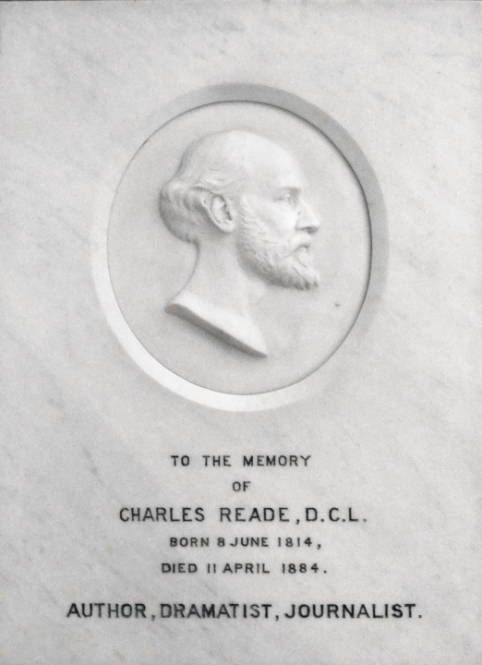A strong, healthy air of honest and high purpose breathes through nearly all the stories. An utter absence of cant, affectation, and sham distinguishes them. A surprising variety of descriptive power, at once bold, broad, and realistic is one of their great merit. Mr. Reade can describe a sea-fight, a storm, the forging of a horseshoe, the ravages of an inundation, the trimming of a lady's dress, the tuning of a piano, with equal accuracy and apparent zest. . . .
Indeed, Mr. Reade wants no quality which is necessary to make a powerful story-teller, while he is distinguished from all mere story-tellers by the fact that he has some great social object to serve in nearly everything he undertakes to detail. More than this I do not believe he is, nor, despite the evidences of something yet higher which were given in Christie Johnstone and The Cloister and the Hearth, do I think he ever could have been. He is a magnificent specimen of the modern special correspondent, endowed with the additional and unique gift of a faculty for throwing his report into the form of a thrilling story. But it requires something more than this, something higher than this, to make a great novelist whom the world will always remember. Mr. Reade is unsurpassed in the second class of English novelists, but he does not belong to the front rank. His success has been great in its way, but it is for an age and not for time. — Justin McCarthy (1872)


Biographical Materials
- Introduction
- Chronology (needed)
- Works
- Memorial in the Crypt, St. Paul's Cathedral
Literary Relations
- Charles Reade and The Moonstone
- Compared to other authors who chose socially significant themes
- Justin McCarthy (1872) on Charles Reade
- George Orwell (1940) on Reade
- A. C. Swinburne on Reade (complete text of essay)
Cultural Contexts
- Artistic Relations
- Victorianism
- Religion and Philosophy
- Science and Technology
- Victorian Psychology
Science and Technology
Social and Political Contexts
- Reade on the Railway Mania of the 1840s (Hard Cash)
- Victorian Political History: An Overview
- Victorian Social History: An Overview
- Prison conditions
- Mental hospitals
- Trade Unions
Theme and Technique
- Themes
- Characterization
- Imagery, Symbolism, and Motifs
- Genre and Mode
- the Problem Novel
Last modified 4 February 2020